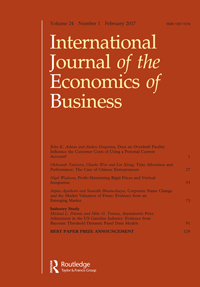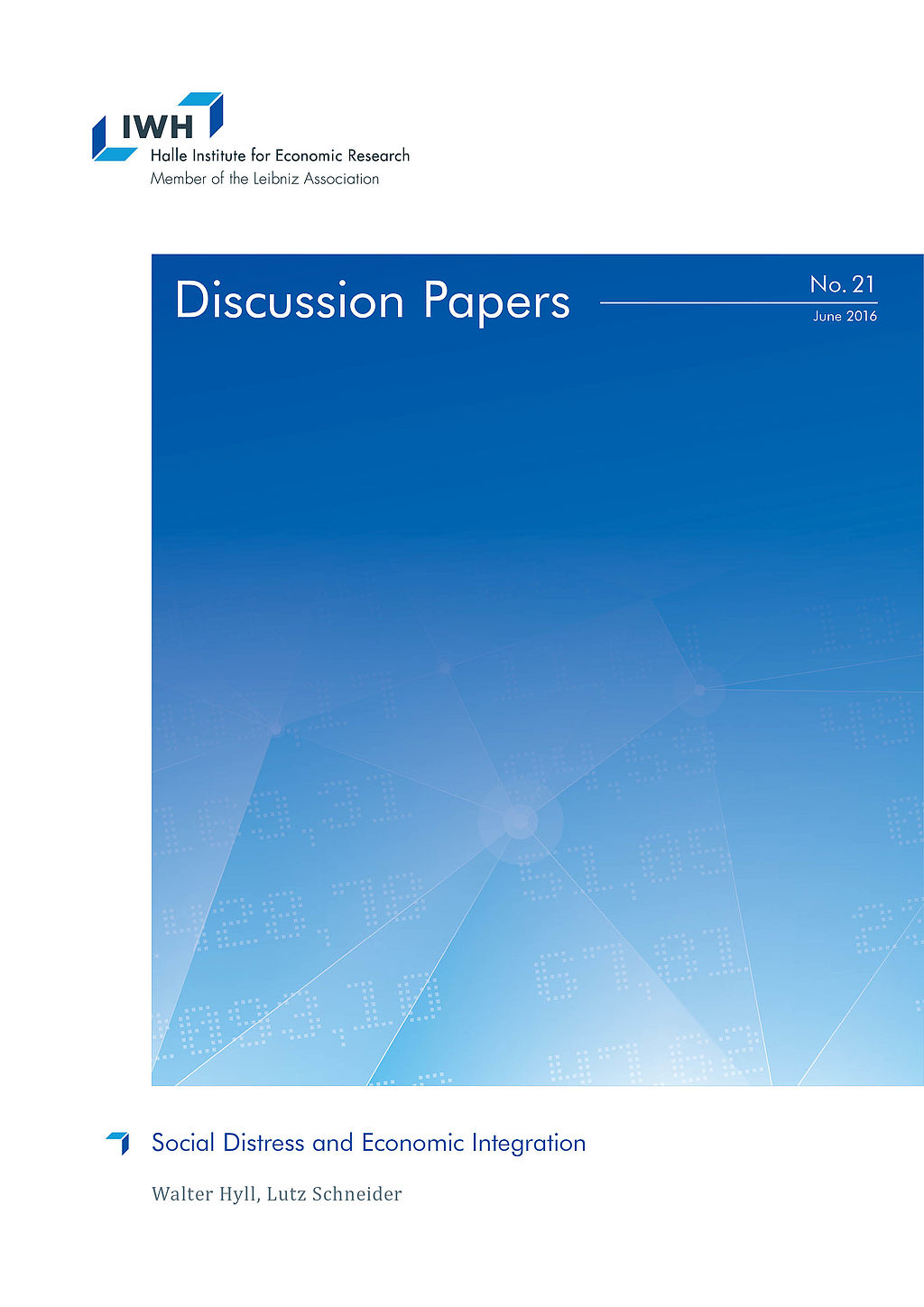Anpassungsfähigkeit und Resilienz des Finanzsystems
Diese Forschungsgruppe untersucht kritische Aspekte der Anpassungsfähigkeit und Widerstandsfähigkeit von Finanzsystemen. Sie analysiert die Auswirkungen von Naturkatastrophen auf Finanzsysteme, die Auswirkungen politischer Präferenzen für die grüne Transformation und die Bedeutung von Kultur in den Volkswirtschaften.
Forschungscluster
Finanzresilienz und RegulierungIhr Kontakt

Mitglied - Abteilung Finanzmärkte
PROJEKTE
07.2016 ‐ 12.2018
Relationship Lenders and Unorthodox Monetary Policy: Investment, Employment, and Resource Reallocation Effects
Leibniz-Gemeinschaft
We combine a number of unique and proprietary data sources to measure the impact of relationship lenders and unconventional monetary policy during and after the European sovereign debt crisis on the real economy. Establishing systematic links between different research data centers (Forschungsdatenzentren, FDZ) and central banks with detailed micro-level information on both financial and real activity is the stand-alone proposition of our proposal. The main objective is to permit the identification of causal effects, or their absence, regarding which policies were conducive to mitigate financial shocks and stimulate real economic activities, such as employment, investment, or the closure of plants.
01.2015 ‐ 12.2019
Interactions between Bank-specific Risk and Macroeconomic Performance
Deutsche Forschungsgemeinschaft (DFG)
Referierte Publikationen

The Impact of Technology and Regulation on the Geographical Scope of Banking
in: Oxford Review of Economic Policy, Nr. 4, 2004
Abstract
We review how technological advances and changes in regulation may shape the (future) geographical scope of banking. We first review how both physical distance and the presence of borders currently affect bank lending conditions (loan pricing and credit availability) and market presence (branching and servicing). Next we discuss how technology and regulation have altered this impact and analyse the current state of the European banking sector. We discuss both theoretical contributions and empirical work and highlight open questions along the way. We draw three main lessons from the current theoretical and empirical literature: (i) bank lending to small businesses in Europe may be characterized both by (local) spatial pricing and resilient (regional and/or national) market segmentation; (ii) because of informational asymmetries in the retail market, bank mergers and acquisitions seem the optimal route of entering another market, long before cross-border servicing or direct entry are economically feasible; and (iii) current technological and regulatory developments may, to a large extent, remain impotent in further dismantling the various residual but mutually reinforcing frictions in the retail banking markets in Europe. We conclude the paper by offering pertinent policy recommendations based on these three lessons.

Softening Competition by Inducing Switching in Credit Markets
in: Journal of Industrial Economics, Nr. 1, 2004
Abstract
We show that competing banks relax overall competition by inducing borrowers to switch lenders. We illustrate our findings in a two-period model with adverse selection where banks strategically commit to disclosing borrower information. By doing this, they invite rivals to poach their first-period market. Disclosure of borrower information increases the rival's second-period profits. This dampens competition for serving the first-period market.

Bank-Firm Relationships and International Banking Markets
in: International Journal of the Economics of Business, Nr. 3, 2002
Abstract
This paper reviews how long-term relationships between firms and banks shape the structure and integration of banking markets worldwide. Bank relationships arise to span informational asymmetries that are endemic in financial markets. Firm-bank relationships not only entail specific benefits and costs for both the engaged firms and banks, but also directly affect the structure of banking markets. In particular, the sunk cost of screening and monitoring activities and the 'informational capital' collected by the incumbent banks may act as a barrier to entry. The intensity of the existing firm-bank relationships will determine the height of this barrier and shape the structure of international banking markets. For example, in Scandinavia where firms maintain few and strong relationships, foreign banks may only be able to enter successfully through mergers and acquisitions. On the other hand, Southern European firms maintain many bank relationships. Therefore, banks may consider entering Southern European banking markets through direct investment.

Attribute Dependence and the Provision of Quality
in: Regional Science and Urban Economics, Nr. 5, 2001
Abstract
Often a quality improvement necessitates modifications of varietal product features. This paper studies firms’ incentives to provide quality when this decision affects the goods’ degree of perceived horizontal differentiation. We find that the quality level hinges crucially on the interaction between the quality and the varietal product attribute. We examine the outcome of a game where firms decide on quality and price relative to what a social planner would desire. If the interaction between quality and perceived horizontal differentiation is sufficiently positive, we find for the sequential game ‘quality then price’ that the private incentives to provide quality are excessive relative to the social optimum. As a result the level and the direction of interaction between the attributes determines whether there is excessive or insufficient provision of quality.

On the Incentives to Provide Fuel-Efficient Automobiles
in: Journal of Economics, Nr. 2, 2001
Abstract
We argue that the provision of more fuel-efficient cars necessitates specific aerodynamic shapes. We show that the presence of this technological constraint may reduce the incentives to provide fuel efficiency. In equilibrium, cars become more similar and aerodynamic as fuel prices increase. However, the provided level of fuel efficiency falls short of the social optimal one such that a fuel-economy standard is welfare-enhancing.
Arbeitspapiere

Corporate Governance Structures and Financial Constraints in Multinational Enterprises – An Analysis in Selected European Transition Economies on the Basis of the IWH FDI Micro Database 2013 –
in: IWH Discussion Papers, Nr. 3, 2015
Abstract
In our analysis, we consider the distribution of decision power over financing and investment between MNEs’ headquarters and foreign subsidiaries and its influence on the foreign affiliates’ financial restrictions. Our research results show that headquarters of multinational enterprises have not (yet) moved much decision power to their foreign subsidiaries at all. We use data from the IWH FDI Micro Database which contains information on corporate governance structures and financial restrictions of 609 enterprises with a foreign investor in Hungary, Poland, the Czech Republic, Slovakia, Romania and East Germany. We match data from Bureau van Dijk’s AMADEUS database on financial characteristics. We find that a high concentration of decision power within the MNE’s headquarter implicates high financial restrictions within the subsidiary. Square term results show, however, that the effect of financial constraints within the subsidiary decreases and finally turns insignificant when decision power moves from headquarter to subsidiary. Thus, economic policy should encourage foreign investors in the case of foreign acquisition of local enterprises to leave decision power within the enterprise and in the case of Greenfield investment to provide the newly established subsidiaries with as much power over corporate governance structures as possible.


















